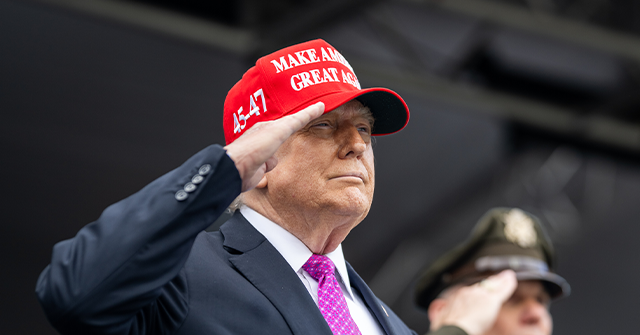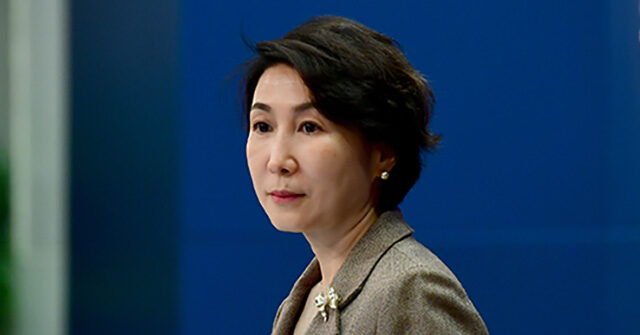Trade War? No, Trump’s Tariffs Just Ended One
The critics said tariffs would start a trade war. Instead, Donald Trump may have just ended one.
On Monday, the White House announced a trade agreement with Vietnam: a 20 percent tariff on goods imported to the United States, and in return, Vietnam will eliminate all tariffs on U.S. exports. A threatened 46 percent tariff—set to take effect July 9—has been shelved.
There was no retaliation. No collapse in talks. No spiral. What happened was something very different: a negotiated settlement. A reset. One that suggests Trump’s trade policy, long dismissed as erratic and dangerous, is in fact grounded in a tradition older—and more serious—than his critics ever imagined.
This is not a revolution. It is a restoration.
Back in April, in these pages, we explained the real economic logic behind Trump’s strategy—one that most of the commentariat either ignored or never learned. In The Forgotten Economic Theory Behind Trump’s Tariffs and its sequel, The Forgotten Economics Behind Trump’s Tariffs: Part II, we made the case that Trump was not launching a reckless trade war. He was applying textbook economic theory—specifically, optimal tariff theory—to a broken global system.
That theory holds that a large economy like the United States, by imposing tariffs, can shift some of the burden onto foreign exporters and improve its own terms of trade. And when wielded strategically, tariffs can do something more: they can force open foreign markets long closed to American goods. That’s exactly what happened this week.
The Metternich Method: How Trump’s Tariffs Delivered Trade Peace
Vietnam’s exports were set to face a 46 percent tariff under Trump’s Liberation Day schedule. The July 9 deadline loomed. And faced with real costs, Vietnam blinked. The deal they accepted—20 percent tariffs on their exports, zero tariffs on ours—is not a climbdown by the United States. It’s a concession. A proof of concept. A vindication of everything we argued this spring.
What we are seeing now is not trade chaos, but a carefully constructed rebalancing. It recalls a much older model of diplomacy—one that Peter Viereck, the conservative historian and theorist, sought to reintroduce in his 1949 book Conservatism Revisited. In it, Viereck called for the revival of Prince Klemens von Metternich, the Austrian statesman who engineered the post-Napoleonic settlement at the Congress of Vienna. Metternich did not embrace revolution. He used power to restore order. He brought peace not by yielding and not by force but by recalibrating the European balance, by establishing that rule of law should govern in the affairs between nations.
Donald Trump, in the realm of global trade, is performing the same function.
For decades, American trade policy was guided by a delusion. Opening the U.S. markets to more foreign products would bring peace, prosperity, and global harmony. Open our markets, and others would follow. That theory never matched reality. Instead, we opened while others closed. China deployed a predatory mercantilist strategy on a scale never before imagined. Our so-called “trade partners” erected non-tariff barriers. Europe protected its agriculture and its manufacturers. Countries like Vietnam engaged in trade-washing: running surpluses against the U.S. while running deficits with China, essentially recycling the purchasing power of the U.S. into an economic boon for China. Washington think tanks and Capitol Hill committees issued reports. Nothing changed.
Until Trump changed it.
He began the year by talking about a “ring around the collar” tariff—a universal declaration that trade would no longer be free without reciprocity. Then came the country-specific escalations of Liberation Day. Unlike the economists who treated U.S. power as something to apologize for, Trump used it. And in the case of Vietnam, it worked.
Critics scoffed at the idea that tariffs could lead to anything but retaliation. But the retaliation never came. Vietnam negotiated instead. Even some of Trump’s harshest skeptics are beginning to admit that the strategy may have merit. On Wall Street, the realization that Trump has been underestimated is beginning to set in. As Apollo’s Torsten Sløk put it, “Trump may have outsmarted all of us.”
The irony, of course, is that Trump didn’t do anything new. He simply reached into the toolkit of classical statecraft and applied it to the economic front. What the critics derided as “protectionism” for years turns out, in practice, to be the foreign policy of Metternichian diplomacy and realism applied to trade. What we dismissed as chaos looks more and more like strategy.
Vietnam as the Model: Watch the Trade Dominoes Fall
This agreement with Vietnam isn’t an anomaly. It’s a precedent. It demonstrates that the United States can—in the 21st century, under intense global scrutiny—still use its economic weight to reshape trade terms in its favor. It proves that tariffs can unlock concessions that our elite’s acceptance of foreign mercantilism has failed to produce.
In Conservatism Revisited, Viereck wrote that Metternich offered “the dignity of endurance.” Trump, through these deals, is offering something similar to the American worker and industrial base: the restoration of long-denied balance, the dignity of being treated fairly, and the end of the assumption that American market access is free and unconditional, some kind of right of foreigners to the purchasing power of our citizens.
Trump’s tariffs did not collapse the global economy. They forced its participants to finally play fair.
We said this would happen. We said it in April, when the entire commentariat was still pretending the tariff era was a blunder waiting to be reversed. The Vietnam agreement is not a surprise. It’s a vindication.
This is not the start of a trade war. It is the end of one. And the settlement has been achieved by the most unlikely statesman of our time: the Metternich of trade.
The post Breitbart Business Digest: The Vietnam Peace, Metternich, and Trump’s Trade Strategy appeared first on Breitbart.




